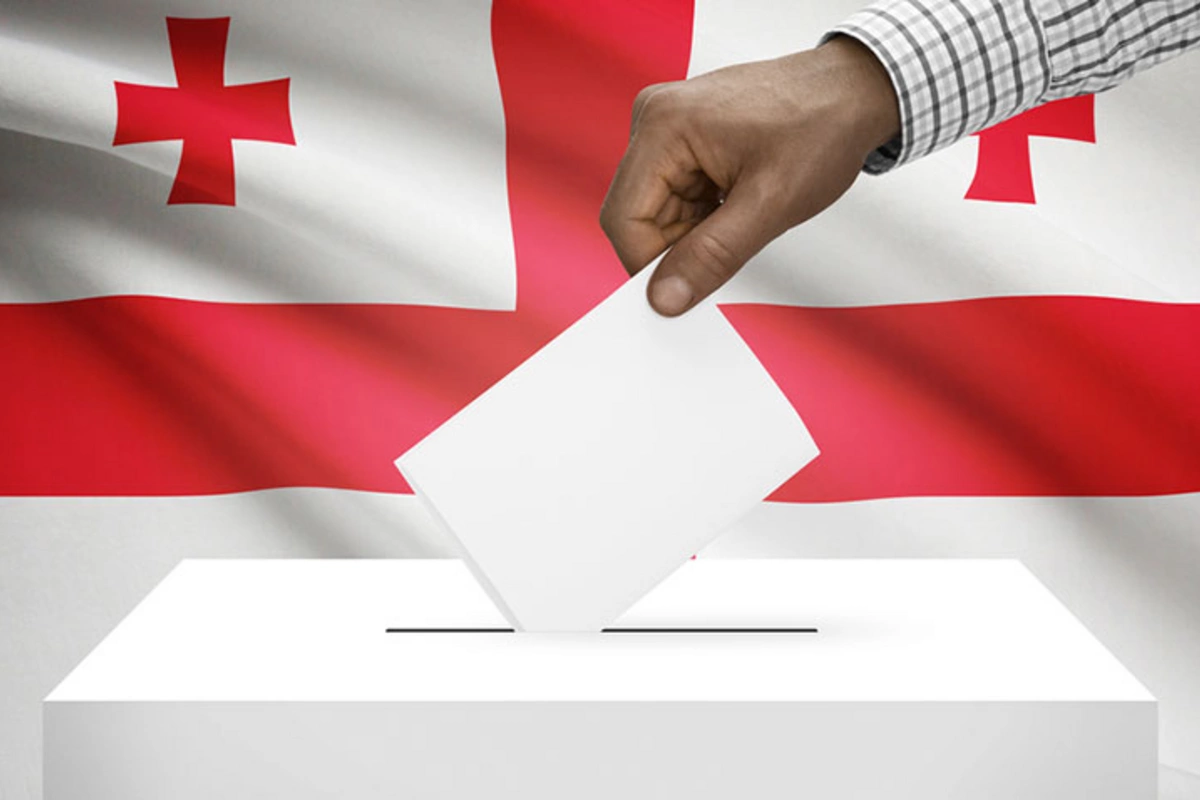
Google images
By Tural Heybatov
The presidential elections in Georgia have concluded, with the Central Election Commission (CEC) declaring their successful completion. Over half of the 300-member electoral college took part in the voting.
Mikheil Kavelashvili, the sole candidate for Georgia"s sixth presidency, was nominated by the ruling party Georgian Dream - Democratic Georgia. Kavelashvili, a former football player and parliamentarian, ran unopposed as the opposition boycotted the elections.
Citing illegitimacy, they also dismissed the results of the October 26 parliamentary elections and refused to participate in the presidential race or parliamentary sessions.
Western media outlets have described the elections as illegitimate, though they align with constitutional provisions. The shift to a parliamentary system began under the leadership of Mikheil Saakashvili.
Presidential elections in Georgia ceased to be direct and nationwide after constitutional amendments came into effect in 2018. Under the new framework, the president is elected by an electoral college rather than through a popular vote. For the election to be valid, two-thirds of the college members must participate. If a second round is necessary, a simple majority suffices. Given that 150 members of the college represent the ruling party, the outcome was predictable.
Georgia"s transformation into a parliamentary republic began in 2010 with a gradual reduction of presidential powers. Although the president remains the head of state and commander-in-chief of the Armed Forces, these roles are largely ceremonial, requiring government approval for most actions. The president cannot independently represent Georgia internationally, sign treaties, or appoint ambassadors without parliamentary consent. Even the presidential veto can be overridden by the parliament. In cases of significant conflict, the parliamentary speaker can sign documents in the president's stead.
In October 2017, the Georgian parliament overrode a presidential veto to adopt a new constitution, solidifying the country"s parliamentary system. Discussions on governance models date back to 1995, with reforms starting in 2010 significantly reducing presidential authority while expanding the powers of the prime minister and government.
One theory suggests that these changes were intended to allow Saakashvili to transition to the role of prime minister after his presidential term ended.
A similar scenario unfolded in Armenia when Serzh Sargsyan transitioned the country to a parliamentary system to retain power. However, both Sargsyan and Saakashvili failed to benefit from these reforms. Like Georgia, Armenia"s president now holds a largely symbolic role with little influence over state policy.
Current Georgian President Salome Zourabichvili, who assumed office with the backing of Georgian Dream, has openly criticized the December 14 elections. Zourabichvili considers them illegitimate, arguing that they were conducted by a parliament she deems unlawful.
On the eve of the elections, the opposition gathered near the parliament, preparing for protests. This time, they abandoned fireworks in favor of soccer balls, symbolizing Kavelashvili"s background as a footballer. Recently enacted laws prohibit protestors from wearing masks or using pyrotechnics, with violations incurring hefty fines of 2,000 lari (€680). Larger fines of up to 15,000 lari (€5,000) apply for blocking traffic or damaging property. However, these amendments will only take effect once signed by the president-a step Zourabichvili has already refused to take, calling the elections a disgrace.
On election day, Zourabichvili marched down Rustaveli Avenue, declaring her intent to continue working from her office and refusing to vacate the presidential residence until new parliamentary elections are held.
While the opposition and Zourabichvili question the legitimacy of the elections, parliamentary speaker Shalva Papuashvili defended the process. He compared it to the U.S. and German systems, where presidents are elected by electoral colleges.
In the days leading up to the elections, Tbilisi Mayor Kakha Kaladze reminded Zourabichvili of her initial appointment, noting that her 2018 election relied heavily on the support of Georgian Dream. Kaladze even apologized for his party"s decision to back her at the time, claiming it was necessary to prevent Saakashvili"s team from regaining power.
Meanwhile, Georgia"s State Security Service revealed concerns about potential disruptions during the elections, including reports of plans to sacrifice individuals to incite protests. A leaked video from Imedi TV captured protesters discussing the need for casualties to sustain momentum. One participant stated, "We need a corpse; otherwise, people won"t come out again."
Despite these tensions, Georgian Dream appears confident, bolstered by public support and the ability to maintain control. Although the opposition lacks the strength for a full-fledged coup, an escalation of tensions remains likely, promising a challenging period for the government led by Irakli Kobakhidze.
Share on social media